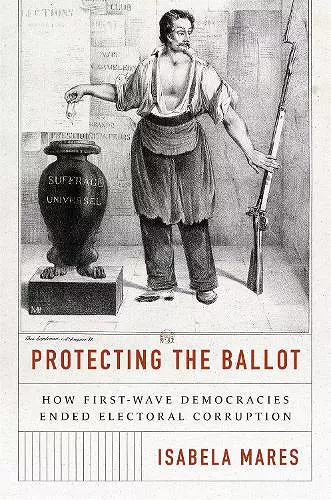Protecting the Ballot
How First-Wave Democracies Ended Electoral Corruption
Format:Hardback
Publisher:Princeton University Press
Published:29th Nov '22
Currently unavailable, and unfortunately no date known when it will be back
This hardback is available in another edition too:
- Paperback£30.00(9780691240039)

How reforms limiting electoral misconduct completed the process of democratization
Between 1850 and 1918, many first-wave democracies in Europe adopted electoral reforms that reduced the incidence of electoral malfeasance. Drawing on analysis of parliamentary deliberations and roll-call votes in France, Germany, Belgium, and the United Kingdom, Protecting the Ballot explores how these electoral changes came about.
Reforms limiting electoral malfeasance came in a variety of forms. Some reforms imposed harsher punishments for bribing or the politicization of state resources during campaigns. Other changes improved electoral secrecy, providing better protection of voters’ autonomy. By mandating the presence of candidate representatives supervising electoral operations, reforms also reduced the incidence of electoral fraud. Isabela Mares documents how elite splits facilitated the formation of parliamentary majorities in support of electoral reforms. The political composition of these majorities varied across countries and across issue area, depending on the distribution of political resources and the economic and electoral costs incurred by politicians with opportunities to engage in malfeasance. Unpacking the electoral determinants of the demand for reforms, Mares offers an alternative to theories of democratization that emphasize economic considerations alone.
By studying the successful adoption of reforms limiting electoral irregularities in first-wave democratic transitions, Protecting the Ballot sheds light on the opportunities and obstacles for ending electoral wrongdoing in recent democracies.
"Winner of the European Politics & Society Best Book Award, American Political Science Association"
"Mares . . . makes use of extensive research to demonstrate that reforms to eliminate corruption were opposed by incumbent powers until political fragmentation or ‘elite split’—as in France and Germany—prolonged competition and increased electoral costs, creating incentives for cooperation." * Choice *
ISBN: 9780691240022
Dimensions: unknown
Weight: unknown
264 pages